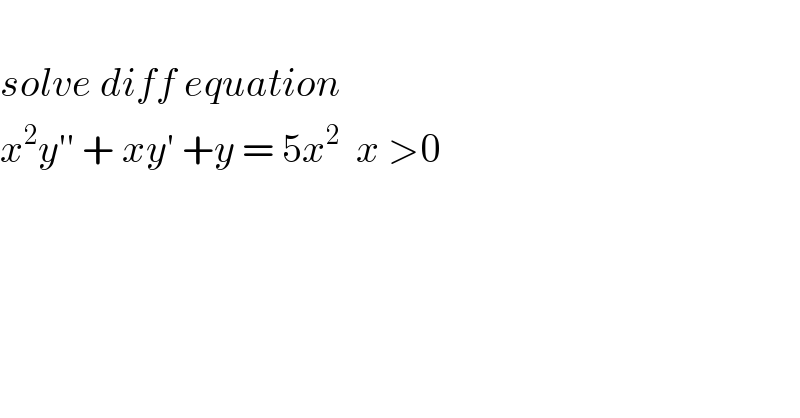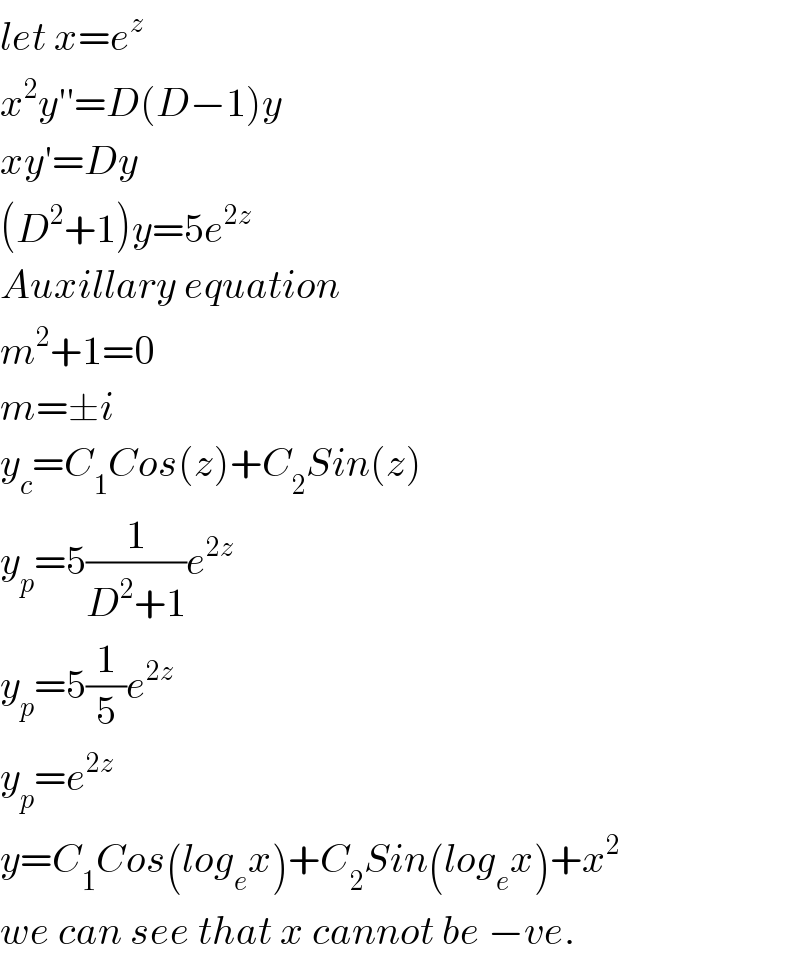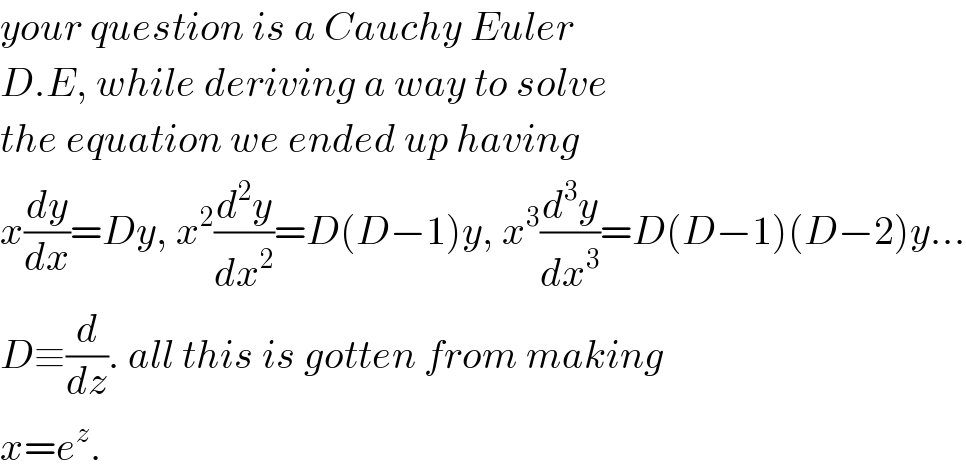
Question and Answers Forum
Previous in Differential Equation Next in Differential Equation
Question Number 90952 by jagoll last updated on 27/Apr/20

Answered by MWSuSon last updated on 27/Apr/20

Commented byjagoll last updated on 27/Apr/20

Commented byMWSuSon last updated on 27/Apr/20

Commented byjagoll last updated on 27/Apr/20

Commented byMWSuSon last updated on 27/Apr/20

